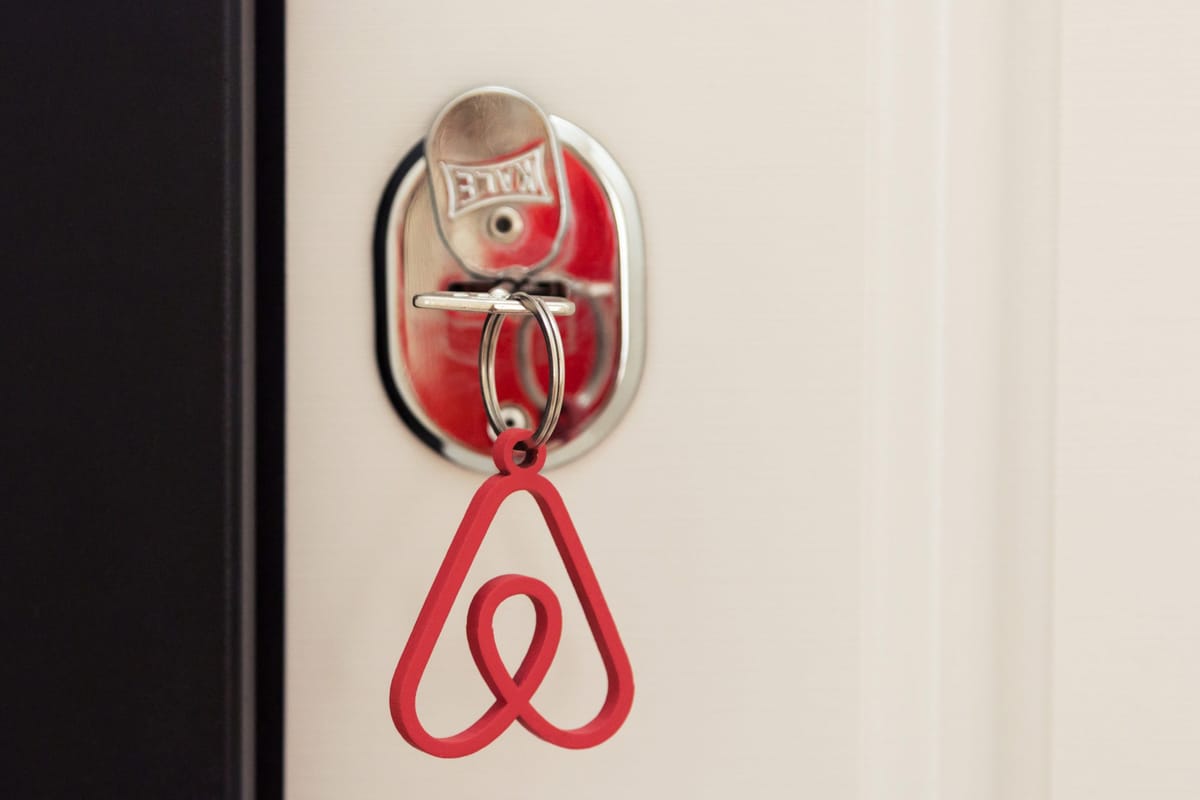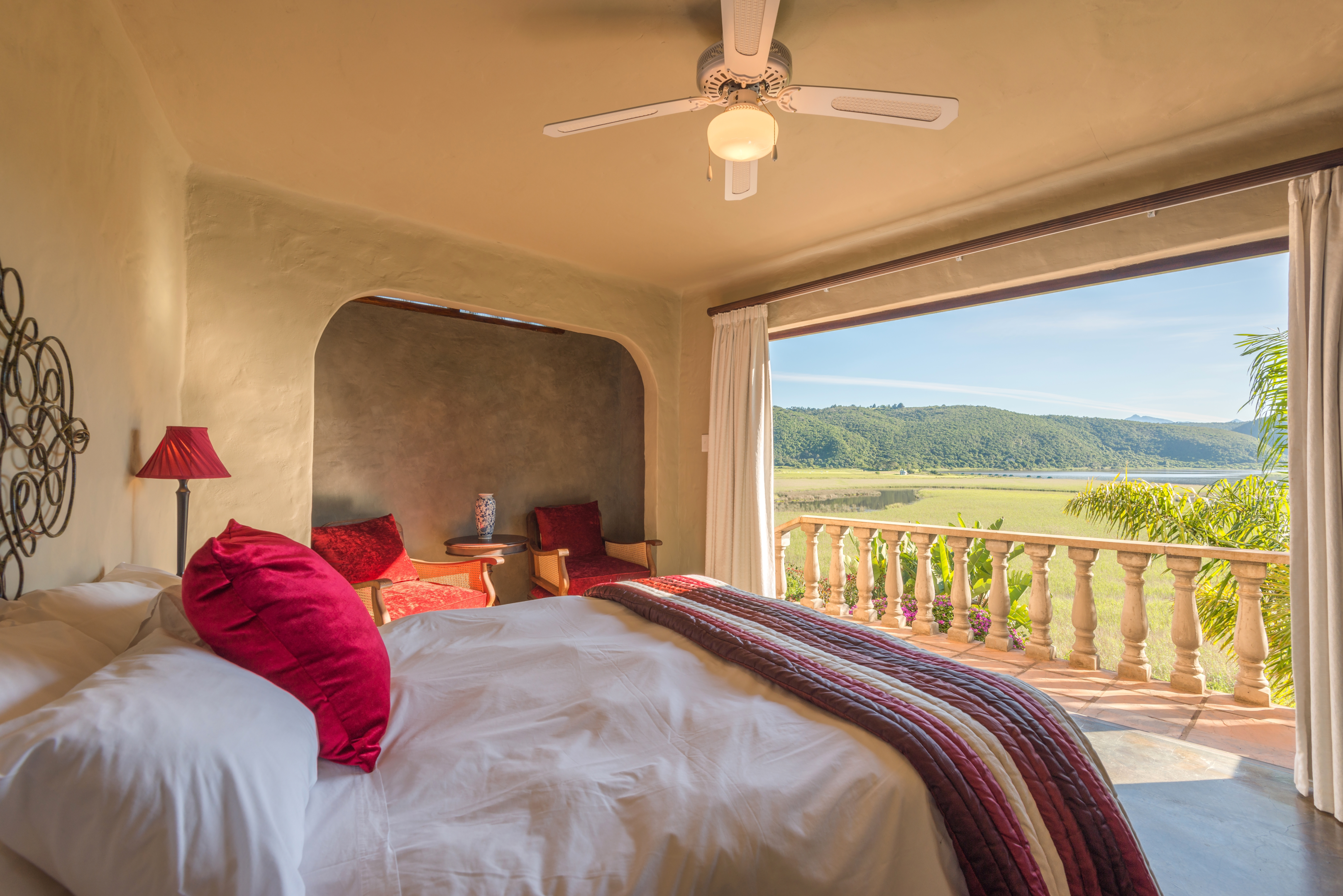STR Airbnb Success: 7 Essential Tips for Profitable Hosting in 2024

Renting out an apartment or house on Airbnb is a great way to meet people from all over the world. Even if that’s your main motivation, you’ll need to ensure that your operations stay profitable.
Marketing isn’t the only way to leave your mark and generate more income. By ensuring that you stick to the basics, you’re setting yourself up for long-lasting STR Airbnb success. Here are seven strategies that apply to all hosts across the board.

1. Study the Local Laws (Again)
Laws and regulations can have a major impact on your bottom line. For example, depending on in which state your property is located, you could end up paying extra taxes. Take the state of Georgia as an example. Here, you’ll also need to budget for local occupancy taxes which can be as high as 6% of the listing price.
Aside from taxes, you’ll also need to plan around local rules that can require a permit and/or limit the number of nights you’re allowed to rent out your property. Ignorance can be costly and if you break one of these rules you could be slapped with a hefty fine.
For example, hosts in Nashville can incur a $50 fine if they operate a short-term rental without a permit. Here’s where it gets tricky: each day that they operate without a permit can be viewed as a separate offense.
Whether you’re a brand-new Airbnb host or it’s your fifth year of hosting, it’s crucial that you regularly read up on all the laws and regulations. These rules aren’t fixed.
Recently, the city of New York started to enforce strict new STR rules. It’s not an isolated case. In Europe, new rules are also continuously introduced to restrict hosting.
It can be a good idea to contact a local lawyer experienced in short-term rentals. After all, you’ll probably need other types of legal documents too like employee contracts for your cleaning staff or a written agreement with your landlord if you’ll be subletting.
2. Identify a Target Market
Just like any other business, Airbnb hosts can benefit from zooming in on a specific niche. Instead of simply marketing your short-term rental to travelers, you can target a specific group of travelers.
For example, if your property is close to the airport or convention centers, it can make sense to try and appeal to business travelers specifically. On the other hand, if your vacation rental has immediate access to the beach, targeting families or honeymooners will be a better move.
In addition to the location, also let your property’s features and your personal preferences guide you. If you prefer to host individuals or smaller groups, you can target digital nomads, traveling nurses, or couples by emphasizing features like Wi-Fi and privacy.
For this to work, though, your property and its amenities need to match the needs of the guests. If you want to make business travelers or digital nomads your target market, a comfortable workspace will be an expectation. On the other hand, if you’re targeting families, sacrificing an office for a playroom can help you to land more bookings.
3. Go Multi-channel
To maximize your profits, you’ll need to increase the exposure of your properties. One of the easiest ways to do that is to list your property on more than one platform.
Airbnb might be synonymous with hosting, but it isn’t the only online marketplace with a big reach. If you haven’t done so yet, you can also create a listing on other popular platforms like Booking.com and Vrbo.
When deciding on which platforms to list, also take into account your target market. For example, Vrbo is popular among families, making it a must if you want to host more big groups.
Then, you can take it one step further and create your own website too. Not only is it a good backup to have in case these third-party platforms change their rules drastically, but it’s also a way to attract more direct bookings. Your own website also offers you a way to offer a more personalized guest experience.
4. Update Your Price
If you last changed your nightly rate a week after you first created your Airbnb listings, you’re leaving money on the table. Dynamic pricing is the way to go.
One of the biggest benefits of investing in short-term rentals is that it lets you change your nightly rates in response to factors like events, seasonality, etc. With long-term tenants, you don’t have this option. To maximize your profits, use this key difference to your advantage.
There are a number of dynamic pricing tools that will automate this process. Wheelhouse, Beyond, PriceLabs, and DPGO are some of the most popular ones. These tools have access to data which they use to update your nightly rate in real time to match current demand and supply.
5. Embrace (New) Tech and Automate
Dynamic pricing tools aren’t the only type of tech that can put you on the path of success. Other must-have tools include vacation rental software, a noise monitoring device, a security system, and data analytics.
Most of the tools in these categories offer some form of automation. This will help you to save time and money, which in return will maximize your profits.
It can also help you to elevate the guest experience. Now that you have that tool to automate communication, you also have the time to personalize their stay by, for example, leaving them a welcome basket filled with their favorite guilty treats.
An enhanced guest experience can also impact your profit margins positively. A happy guest is more likely to leave you a five-star review, helping you to attract more bookings without having to spend more on marketing. Word-of-mouth advertising is free and it works.
You can, for example, check out a tool like iGMS. It’s an all-in-one vacation rental software solution created by vacation rental hosts for hosts. It also offers a number of smart tools that will make property managers’ lives easier.
On top of that, it has powerful integrations with several vacation rental platforms and other must-have hosting tools like PriceLabs, Wheelhouse, DPGO, and Stripe.
Here are some of the features that will basically pay for itself:
- Calendar synchronization
- Automated messaging
- A website builder
- A direct booking management toolkit
- PROtrack for guest communication productivity tracking
- Payment processing
- Invoice management
- Cleaning and team management
6. Streamline Your Finances
One way to improve your profit margin is to reduce your expenses. This can be challenging when you’re running a short-term rental property as there are only so many items that you can cut without negatively impacting the guest experience.
If you have a system in place to manage your expenses, it will make it easier to start spotting key trends. Are there items that will be more cost-effective to buy in bulk, for example? Does your electricity bill suddenly skyrocket in summer? In this case, it might make sense to install some type of smart thermometer.
With a proper bookkeeping system in place, you’ll also have a much easier time to identify expenses that you can deduct from tax, helping you to lower your taxes. If you haven’t deducted any expense till now, here are examples of the most common Airbnb tax-deductible expenses:
Service fees charged by a property management company, vacation rental software solution, or online marketplace
- Cleaning supplies and services
- Marketing
- Legal costs
7. Add New Amenities
There’s no better time than the beginning of a year to breathe new life into your short-term rental. It will make a great impression on returning guests to see that you’ve updated your Airbnb. It shows your commitment, proving to them that you’re continuously searching for ways to add more value to their stay. New visitors will also appreciate extra amenities on top of the essentials and offering extra touches will help to set your listing apart from hotels and other short-term rentals in your market.
Here are a few suggestions:
- Upgrade your Wi-Fi speed so that it’s in line with the current standard
- Add a new streaming service like Apple TV, Netflix, or Hulu
- Invest in smart home devices like a robotic vacuum cleaner, smart TV or voice-activated assistant
A good address in a popular city isn’t enough to put your short-term rental on the map. Sure, some locations are more popular, but location can only help you that much.
Many view Airbnb as a source of passive income, which isn’t quite the case. To be successful, you’ll need to keep your finger on the pulse, whether that’s to invest in resources like booking software or in-demand amenities like the latest streaming service.

Unlock the Power of iGMS for Your Short-Term Rentals!
Regardless of your focus in the realm of short-term rentals, iGMS provides a comprehensive suite of tools designed to elevate every aspect of your hosting experience. Delve into our standout features tailored for both novice and seasoned hosts and property managers:
- Centralize your operations with the Channel Manager, effortlessly managing multiple listings across leading platforms.
- Enhance guest relations using Automated Messaging, equipped with customizable templates for consistent and timely communication.
- Simplify financial transactions and invoicing with Payment Processing, integrating seamlessly with Stripe for smooth operations.
- Boost your property’s reputation and guest loyalty by encouraging reviews through Airbnb Automation.
- Optimize direct guest bookings with the Direct Booking Management Toolset, offering a streamlined experience for both hosts and guests.
- Efficiently coordinate tasks and schedules with Team Management, ensuring your property is always guest-ready.
- Stay ahead with real-time tracking and insights using PROtrack, a feature designed to give you a competitive edge in the market.
Dive into these features and more with iGMS, your comprehensive solution for short-term rental management. Elevate your hosting game and achieve unparalleled success today!






![Your Monthly iGMS Roundup [February 2020]](/content/images/size/w600/wordpress/2020/02/igms-roundup-feb-2020-cover.png)

